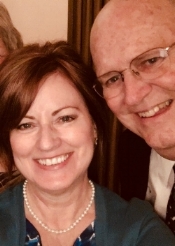I studied Social Work in college. I was drawn to the study of learning more about people, families, cultures and government policies. In many of my classes we had very real discussions about mental health, social groups, racism, people who live in poverty, people with disabilities, people who are different from us in any way. My classes were made up of people who were mostly accepting of differences, people who didn’t want to be judgmental. We even discussed how we all judge others, even though we like to think that we are not judgmental.
One of my professors was a wonderful story teller and she could take a simple experience and share it in a way that had a profound effect on her students. I remember a story she told about her husband being out of town and she got a rock in her tire on the interstate and the tire went flat. She called AAA to come and change her tire. She said she thought about the privilege she had to pick up her cell phone and call for assistance. She shared that in a short time, she went from sitting in her flat-tired car with her teenage son, to being on the drive back home. The story took a turn when she reminded us that there are people who walk 5 miles in the hot sun with their children to get a bowl of mush to eat. No car, no health care, no air conditioning, no electricity, no fresh water, no toilet.
I meet people in my work who tell me they are saddened by the state of our country and by the way people are treating others. There are anxious and depressed people who feel they can no longer tolerate watching the news because it is all about people hurting other people and leaders who have lost sight of what matters. I’m not sure what all those things are that “matter”. But I can say with certainty that ALL people matter and if we stood side-by-side with the people who walk 5 miles for food, God would see us all the same.
I talk to people about respecting themselves & having healthy emotional boundaries with their spouse, their friends, their employers. Boundaries are necessary for good relationships and for maintaining peace and order. But boundaries do not mean there is “Us” and there is “Them”. I can say with all certainty there is only “Us”. I want to watch the news and not have to brace myself for the hate and lack of respect that have become the norm. I want for all of you who have shared with me your depression and anxiety about the way we are treating each other, that we might one day be able to talk about how we see even the smallest shift; that those of us who are blessed with having our daily needs met would care equally for those who are walking a long way every day just to survive. -Gayla Partin, LISW-CP, 1-14-2020




